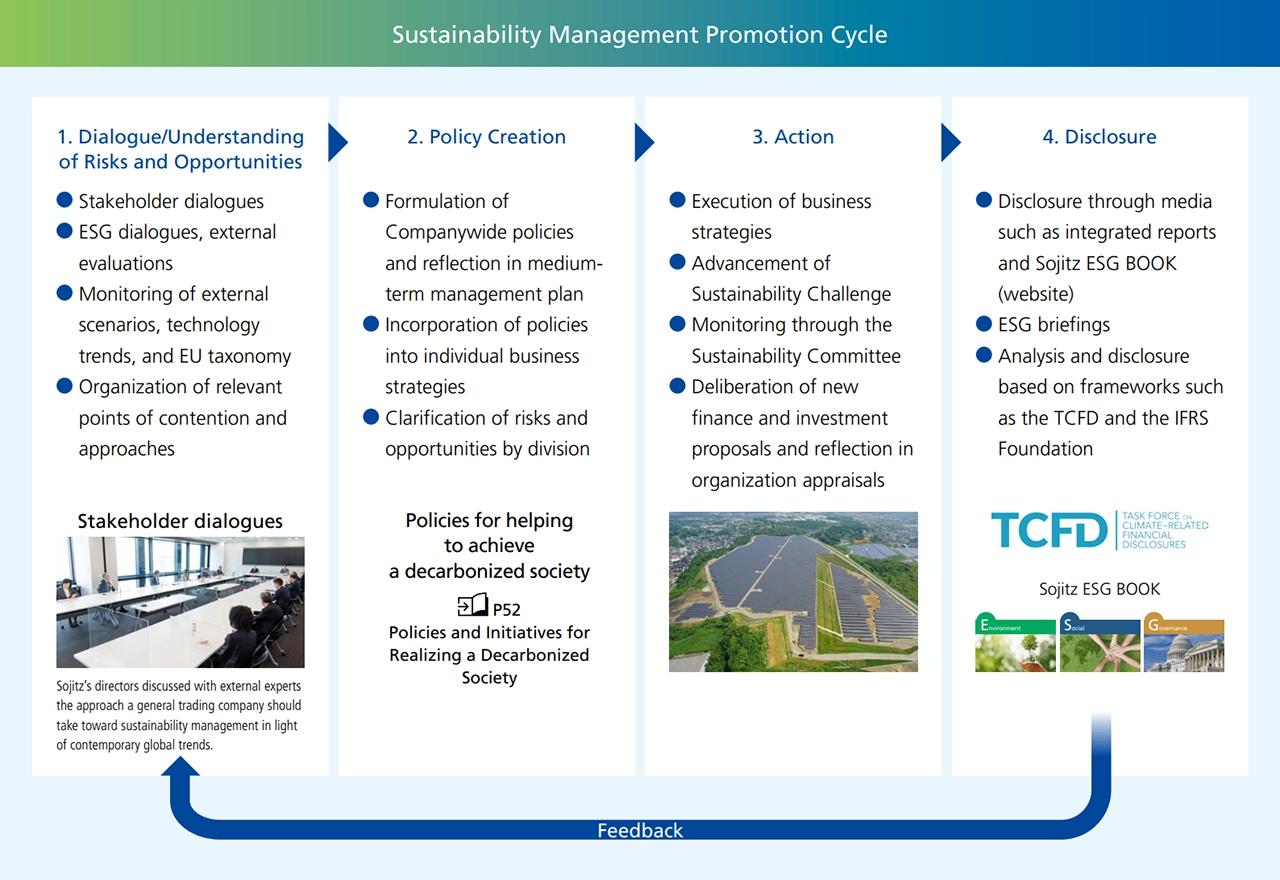Materiality
To continue creating these “two types of value” in the future, Sojitz has determined 6 Materiality (Key Sustainability Issues) to focus on in our business over the medium- to long-term. Based on these issues, we are striving to integrate solutions to global environmental and social problems with our corporate activities and build systems for such integration.
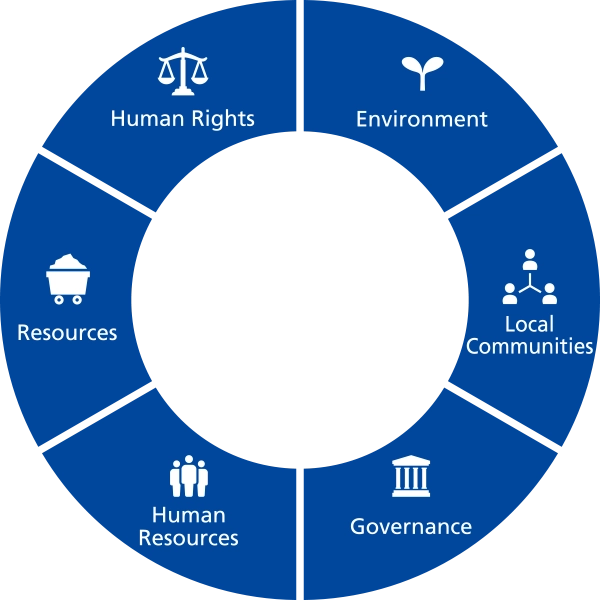
Sojitz Group Statement
The Sojitz Group creates value
and prosperity
by connecting the world with
a spirit of integrity.
How We Set Materiality and Reflect Them in Our Strategies
Our Process for Setting Materiality
In establishing Materiality, we determined sustainability issues to prioritize by analyzing the operating environment, including the Paris Agreement and SDGs; as well as the internal environment, by considering trading company businesses and the unique characteristics of Sojitz; in order to bring to light "risks" and "opportunities" for Sojitz. Furthermore, we brought in an outside expert and held Stakeholder Dialogue, including objective analysis of the validity of these analyses. After also considering the importance to stakeholders, we then defined Key Sustainability Issues and set concrete measures for sustainability goals.
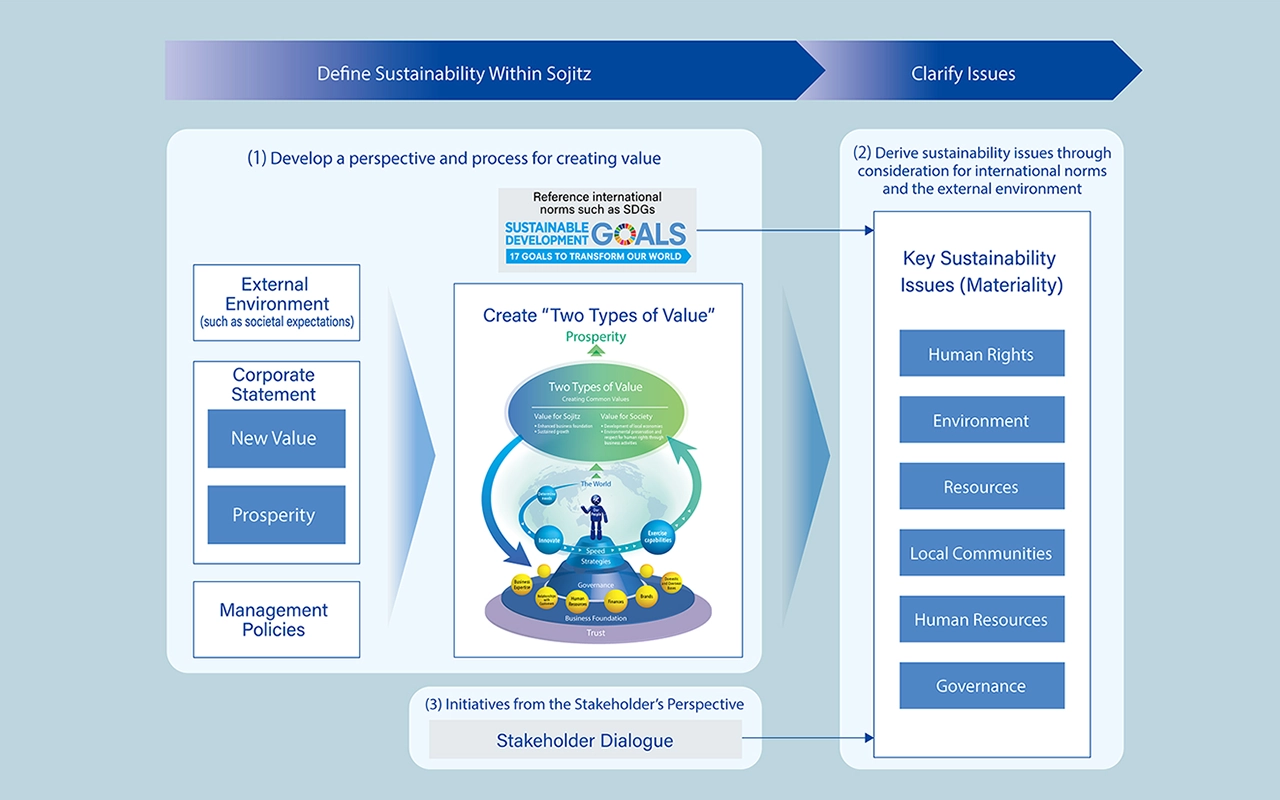
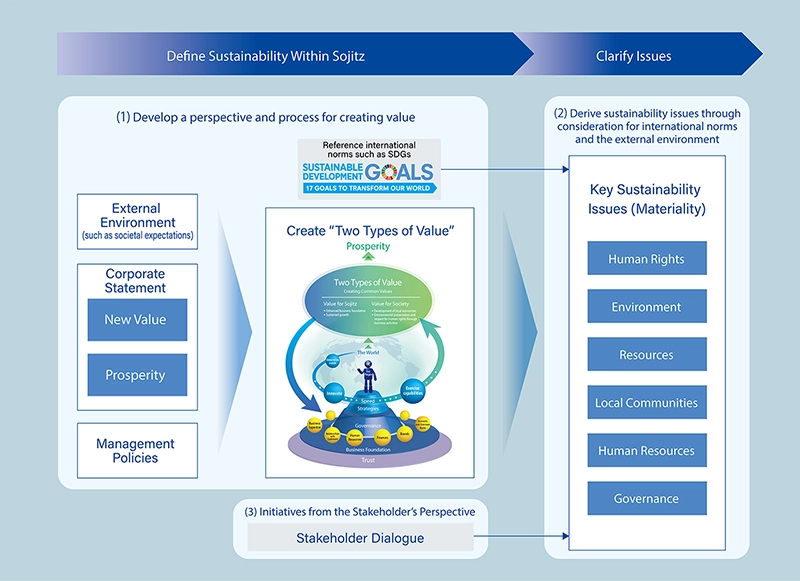
Reflecting Materiality in Our Strategies
Sojitz’s long-term sustainability vision leading up to 2050
The Sustainability Challenge, Sojitz’s long-term vision for 2050, takes a more granular approach toward defining issues among the universal issues. This vision calls on us to help achieve a decarbonized society through our business activities and to respond to human rights issues, including those within our supply chains. These two tasks have been an area of particular focus for Sojitz as of late and have formed the foundation for setting the growth strategies of Medium-Term Management Plan 2023.
Materiality
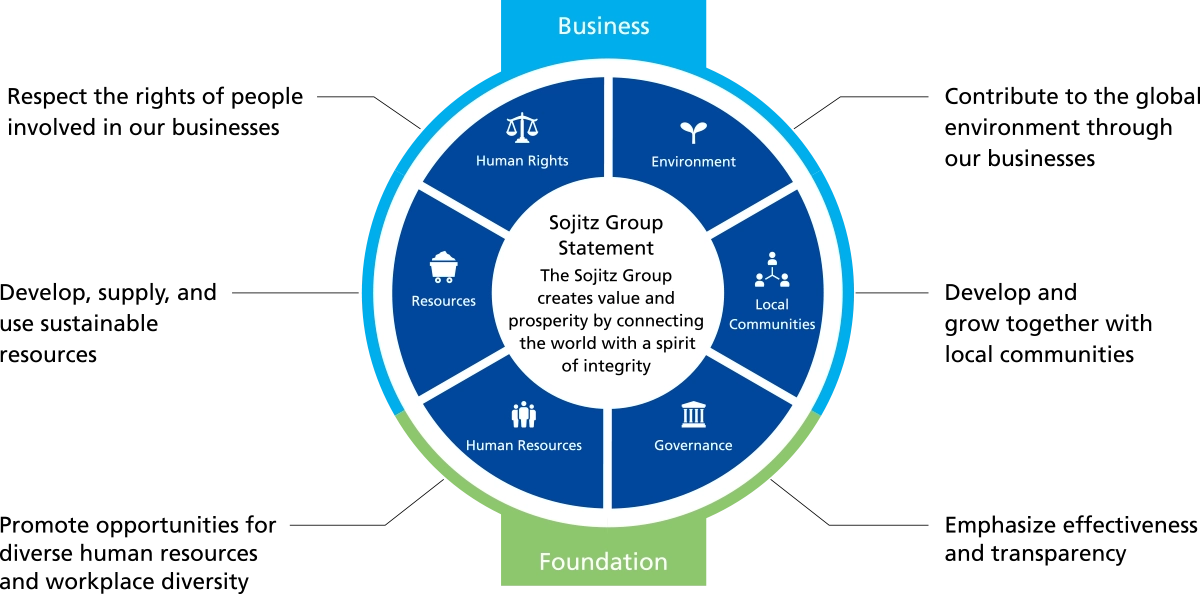
Identification of More Granular Themes

Sustainability Challenge-Long-Term Vision for 2050
-
Decarbonization Initiatives
Sojitz is involved with a number of supply chains that entail the release of CO2 emissions. Accordingly, the transition to a decarbonized society presents a risk to the Company.
Conversely, contributing to the reduction of CO2 emissions throughout society represents an opportunity to create new businesses and an opportunity we are striving to seize. -
Respect for Human Rights within Supply Chains
Addressing human rights issues requires cooperation from all stakeholders involved in supply chains. As Sojitz engages with a number of supply chains, human rights issues are a matter of requiring ongoing attention.
Sustainability Management Promotion Cycle
In formulating its response toward these issues, Sojitz sought to develop an understanding of the risks and opportunities it faced through engagement with stakeholders. Based on this understanding, we established policies related to decarbonization, human rights, and other matters, and reflected these policies in the medium-term management plan 2023 to guide concrete action. In addition, we disclose information on these activities as appropriate in order to gain new input from stakeholders. This approach constitutes our sustainability management promotion cycle.
